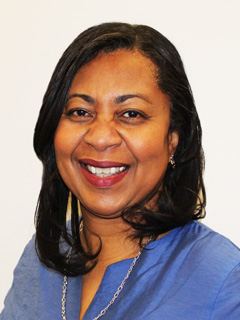
Asthma is a chronic disease that disproportionately affects young Black children. Black American children are twice as likely to have asthma than white children. They also face higher hospitalization and death rates from the condition than their white counterparts.
Poor indoor air quality, air pollution, a lack of primary care, and possible biological links contribute to this health disparity.
A 2024 study published in JAMA Network investigated whether a community-based intervention involving community health workers (CHWs) could influence asthma control. These findings could improve asthma outcomes and help increase Black participation in clinical trials.
Using community health workers (CHWs) to improve asthma management
The study, led by Tyra Bryant-Stephens, MD, looked at whether connecting home, school, healthcare systems and the community through CHWs could improve asthma outcomes for underserved children.
CHWs are members of their communities, working for pay or as volunteers in partnership with local healthcare systems in urban and rural settings. They typically share ethnicity, language, socioeconomic status, and life experiences with the community members they support. This connection and shared understanding are central to the study’s approach.

“Our program has worked individually with schools to do education classes, but we never connected it around the patients,” Dr. Bryant-Stephens tells BlackDoctor.org. “We were trying to think about a patient-centered model where we’re looking at children and other environments that need to be responsible for their asthma care and how to make sure that communication happens.”
To shape the study, Dr. Bryant-Stephens and her team held focus groups with parents, children, school nurses, and primary care doctors on communication gaps in asthma care coordination. “After hearing from the focus groups, it seemed that the best way to connect the dots was through community health workers,” she says. “They’re peers that understand how to navigate the community the families live in.”
The four-year trial involved 626 predominantly Black children from 36 schools in West Philadelphia, Pennsylvania. Participants were assigned to one of six groups: school-only, primary care-only, or a combination of both. CHWs were placed across all settings—home, school, and doctor’s offices—to improve asthma care, address triggers, and coordinate care.
The study showed improved asthma control over 12 months, but the overall changes weren’t significant enough to be considered medically meaningful. However, before the COVID-19 pandemic disrupted the study, children receiving clinic and school-based care had significantly better asthma control than those who didn’t.
What this study tells us about Black participation in clinical trials
The study suggests that involving CHWs in future clinical trials could help increase Black participation by building trust and improving communication with underserved communities. Dr. Bryant-Stephens says that CHWs should play a central role throughout the research process to ensure the perspectives and needs of these communities are addressed.
“CHWs are trusted, and they know what the fears and concerns of the community are,” she says. “I think CHWs should be part of the planning, designing, and implementing studies because they can point out things that you might not think of because you don’t live in the community.”
What’s next?
Dr. Bryant-Stephens says the next steps are sustaining the program and securing policies around reimbursement for CHWs. “Now that we’ve figured out a way to connect all these environments, how do we get support from a policy level as well as a financial level,” she says. “That’s what we’re trying to work on now.”
A significant challenge is Medicaid reimbursement. Some states reimburse CHWs through Medicaid, but there’s no national framework.
“CHWs should be considered part of the healthcare team,” Dr. Bryant-Stephens says. “They’re helping folks do better with their healthcare and realizing their expertise can be just as important as mine in any situation.”








